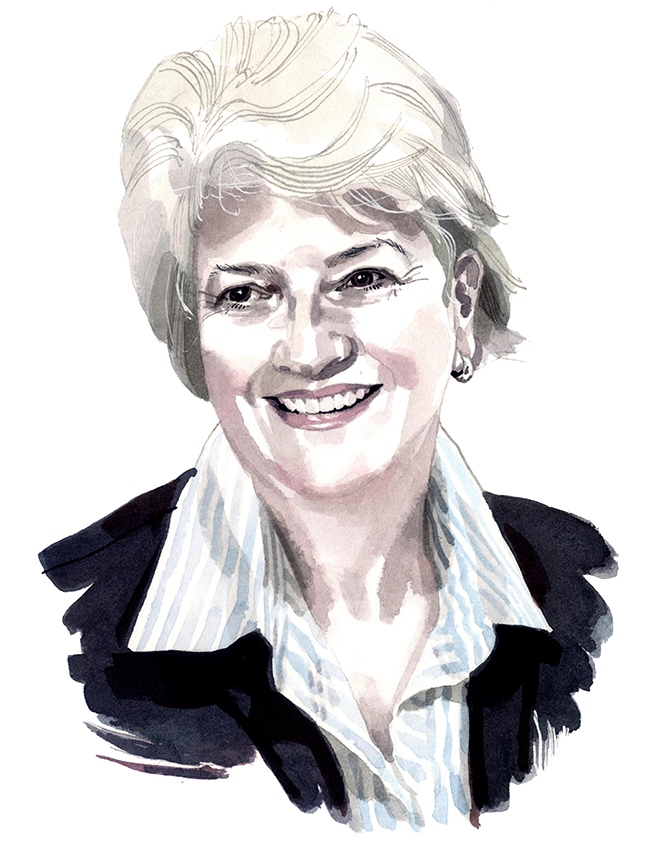Ethics: be courageous

The ethics debate has come a long way since the Institute of Business Ethics (IBE) was founded in 1986 – and even since I joined it first as a trustee in 2000. I recently announced that I will be stepping down in April and, as I look back at how far ethics has risen up the corporate agenda in that time, it's worth remembering that in 1986 business ethics wasn't even recognised as a separate, defined concept. Sir Adrian Cadbury mentioned it in his 1992 report on corporate governance, but it did not become a mainstream term until after the corporate scandals of the 1990s.
By the time I joined the IBE more organisations had begun to include business ethics and guidance for staff on ethical issues into their corporate social responsibilities portfolio, but most did not realise that doing business ethically was not the same as doing ethical things. The IBE fought hard to push the subject deeper into discussions about corporate governance.
I joined the IBE after a career in multinational organisations, during which I had come up against many ethical concerns. So when I was given the opportunity to help companies navigate these difficult areas and do business in a better way I didn't hesitate. Organisations were looking for ways to embed ethics and train staff in ethical business and we were in the ideal place to help them to do it.
Now things have moved on again. The UK Corporate Governance Code 2018, the Wates Corporate Governance Principles for Large Private Companies and the Code of Business Conduct and Ethics for Boards of Directors (2018) all clearly show that this is an area that businesses and their boards must pay attention to if they are to have a viable business. It is now recognised as a fundamental part of the corporate governance space, not just as a "nice to have" add-on. However, despite all these advances, there is still much to do.
Some of this is ongoing – you can't just tick ethical boxes, you have to work at it every day. Each time a new person joins your organisation they need to be told explicitly what is expected of them.
In addition, the legislative background continues to develop. For example, people never used to think that slavery and people trafficking were issues within the UK. They only worried about it happening in far-flung overseas operations. The Modern Slavery Act has changed this outlook. Similarly, what was once seen as "banter" could now be termed as bullying or sexual harassment. Organisations need guidance and support to help people navigate such evolving areas and this guidance should involve several functions including HR, ethics and internal audit.
Internal auditors are in a crucial position because management can only know what is really happening in their organisations and what kind of culture they have in practice if they have trained people visiting every area who are attuned to the nuances. This is why every company should be looking at the skills it needs in its internal audit function – and possibly starting to look further beyond the usual recruitment pool in order to find the wider range of skills they need to audit culture and ethics now and in future.
Internal auditors are the only people in the organisation who can visit every area, interview the people on the ground and find out how they really do their jobs. If internal auditors look for signs that reveal the practice of, and value placed on, ethical behaviour every time they do an audit, this will send a strong message to individuals in all parts of the organisation about what behaviour is expected and what will not be tolerated. It will also create an important source of intelligence to the board and will help audit teams to develop a network of contacts who could raise the alarm in future if they spot something going wrong.
There is still no requirement for all organisations to have a corporate code of ethics – and making these mandatory may not be the best way forward. It may be more powerful to demonstrate the value that they create. The best organisations already have one and stakeholders are starting to demand that the businesses they work with have one too. There is a growing recognition that doing business ethically makes for better business. Doing business is about creating mutual benefit for customer and supplier alike.
Internal auditors are rightly valued for their ability to analyse what's going on inside an organisation. If I have one message for you, I would say "be courageous". You have so much to offer organisations and to contribute to ensuring that they do business well if you have the courage to say what needs to be said.
Philippa Foster Back CBE was appointed director of the Institute of Business Ethics in 2001. She began her career at Citibank NA and went on to have a variety of group treasurer and group finance director roles at Bowater, DG Gardner Group and Thorn EMI.
This article was first published in January 2020.








